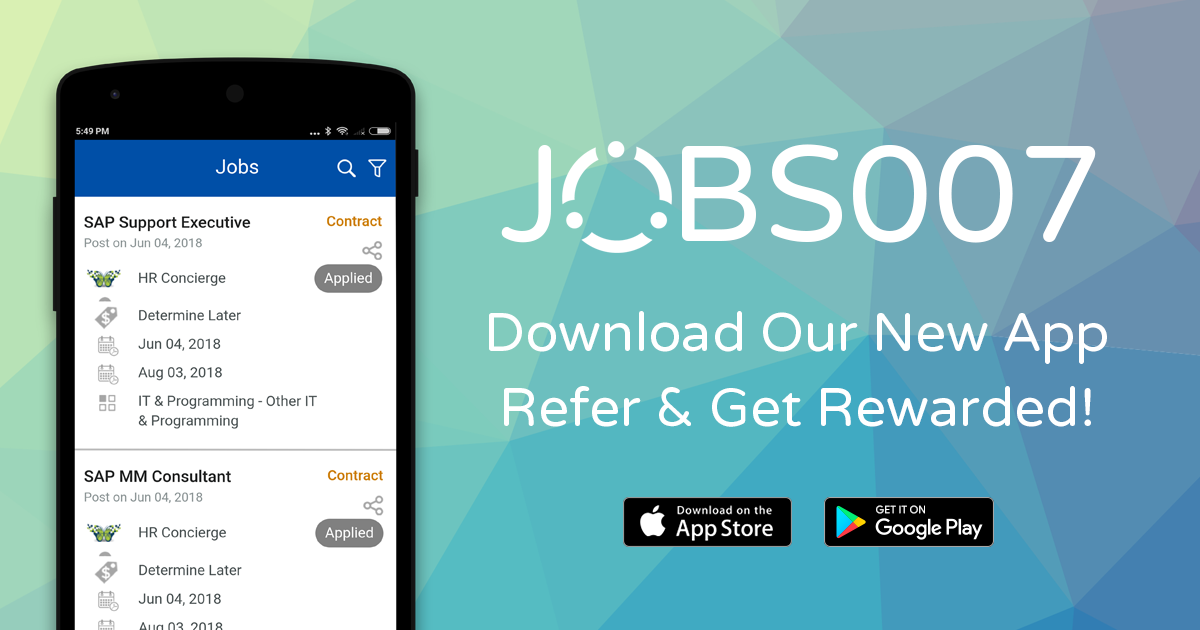The advance of technology has changed the ways of business in the 21st century – it is almost certain that most startups today will desire to have a chief technology officer (CTO), or someone managing and running the technology side of the business. This is not surprising; firms only stand to benefit from ensuring their technologies are in order.
Enter Chris
Meet Chris Hennigfeld, a freelance IT project manager and technology consultant. A veteran of the IT field, Chris helps his clients achieve technological success through his work. In short, he is the guy to look for when you want the technology side of your business to be professionally managed – a CTO for hire, so to speak.
Chris started out as a software developer, working his way up to becoming a team leader and eventually, taking responsibility for whole products. He then decided to venture out and start his own business, a venture that ultimately proved successful.
Moving on, he became the freelancer that he is today. With such an interesting resume, we decided to sit down with Chris to talk about his career, and hear what advice he has for aspiring and fellow freelancers alike.
Starting out
Like most of us, Chris began his career in the corporate world, starting out as a software developer. He moved up the ranks very quickly, proving his strengths in leadership and management.
“I moved into a team leader position fairly quickly, where I would help coordinate the team members based on project requirements. That was how I got into project management,” Chris shares.
He adds on, “In software technology, there are two career tracks: 1) you focus on the technology and try to become an expert in that particular technology, or 2) aim to move into management, where the focus is more on the projects and the people.”
Making the leap – becoming a freelancer
While some freelancers make the move from employee to freelancer directly, Chris did not take the path. Instead, he chose the entrepreneurial route first, creating his own tech startup and building it up, all before venturing into full-time freelancing.
“About three years ago, I decided to create my own startup. I did my research, started participating in startup events and so on. Eventually, I thought it was time to leave my last full-time job and start working fully on my business.”
“It would take some time before my new venture would be profitable, so I began doing some freelance work to earn some income on the side. We ended up selling the startup to one of our partner companies in 2016. Since then, I have been doing full-time freelancing.”
Chris’s secrets to success
Sell well
Sales. The ability to sell and persuade is a must have for freelancers. For Chris however, the ability to convincingly sell his services did not come naturally. Instead, he learnt how to do so through his previous corporate experience.
“In the last regular job I had, I worked for a small European company who was trying to build up their Asian office here. They hired a local sales director to help them run the Asian branch of the company here, and they hired me to build up their technical team. Also, there was another person who did analytics in the team.”
“The sales director left the company shortly after I joined. This posed a problem; they wanted to build up their business here, but they did not have a sales director, a sales type of person. The company did not manage to find a viable replacement, so as a result, my other colleague and I had to do a lot of sales ourselves. For the record, neither of us are salespeople! We had to go out and meet with leads, show them our product, and explain how we are going to work with them and so on. Up to that point, my role was more towards the technical and management side, no sales at all.”
Chris cites this experience as being “extremely valuable” for his freelancing career. He adds, “I learned how to approach leads, how to understand what the customer is looking for, how to explain your product in a way that the customer can understand and see the value of the product.”
He finishes by saying, “As a freelancer, you need to have sales skills. I can’t stress that enough. If you’re not good at sales and are not willing to invest enough time into sales, you’re going to have a hard time as a freelancer.”
Achieve a successful partnership with clients
What is the secret to a successful partnership with your clients, we asked. Chris readily answers, “Keep your client happy.”
Chris then explains, “My job is mostly long-term, at least weeks and months ahead. Sometimes, it gets longer than that; the longest I have had so far lasted nearly 2 years. So I think that continuity is very important for me, because I spent a pretty significant amount of time to process the leads and work them to try to get the right kind of jobs. When I invest that much time, I need it to pay off, so I try to work with my clients for a longer time.”
“Software projects can often take half a year or more. I try to do whatever is possible to give the client what they need. Of course, sometimes your client will say, I want X, but you think X is a really bad idea for them, so you suggest alternatives instead. For me, most of my clients are generally receptive to suggestions. You can tell the client, ‘In the past, I have tried what you want, but it didn’t work out because of this and that.’ If the client listens to you, but insists that they need things done their way, just go with what they want.”
At the same time, Chris tries to look for other areas to help his clients with. This is done by giving feedback and suggestions, then working with the client to make the necessary updates to the product you are working on. Always remember to come from a value-adding perspective; it helps you foster a better partnership with your clients.
“I think that you make the client happy if they see that you are not just doing your main job, but actually thinking about what else you could do to add value to their business. That really helps to build a long-term trusting relationship,” Chris says.
Take the initiative
As a freelancer, you are your business. For Chris, this means having the initiative to figure out what to do for your business, and find your clients.
Citing his own personal experience when looking for other tech professionals to work with, Chris found that some professionals lack initiative. “Some of them tell me, ‘Chris, if you have a job, let me know and I will do it.’ That is not how I really want to work with someone. I want to work with a person who will do a job when I give it to them, but if not, will take the initiative to go out and find their own jobs.”
Be organised and focused
Having the ability to work from home is one of the many perks of being a full-time freelancer. However, the home environment can be filled with distractions that may prevent you from working to your full potential. To this, Chris advises one to be organised.
“You need to be very organised, because anyone who works from home, outside a corporate office environment will not have fixed working hours. You need to figure out how to organise your day-to-day work and life to make sure you get everything done.”
Having a dedicated room or space for work can make all the difference when it comes to being focused when working from home. On this, Chris says, “It helps that I have an entire room in my house that serves as my office. So, it makes a difference, especially compared to my previous apartment whereby I did not have an extra room and used the living room instead. When you have a room solely for working, you are focused when you are in there.”
Conclusion
What a compelling conversation and discussion! We left our chat session with Chris enlightened by his insights into freelancing work. It was a great chance to learn from someone who has experienced the trinity of the corporate, entrepreneurial and freelancing worlds – and we are all better off for it.
—
Click here to learn more about Chris’s past and present projects!















